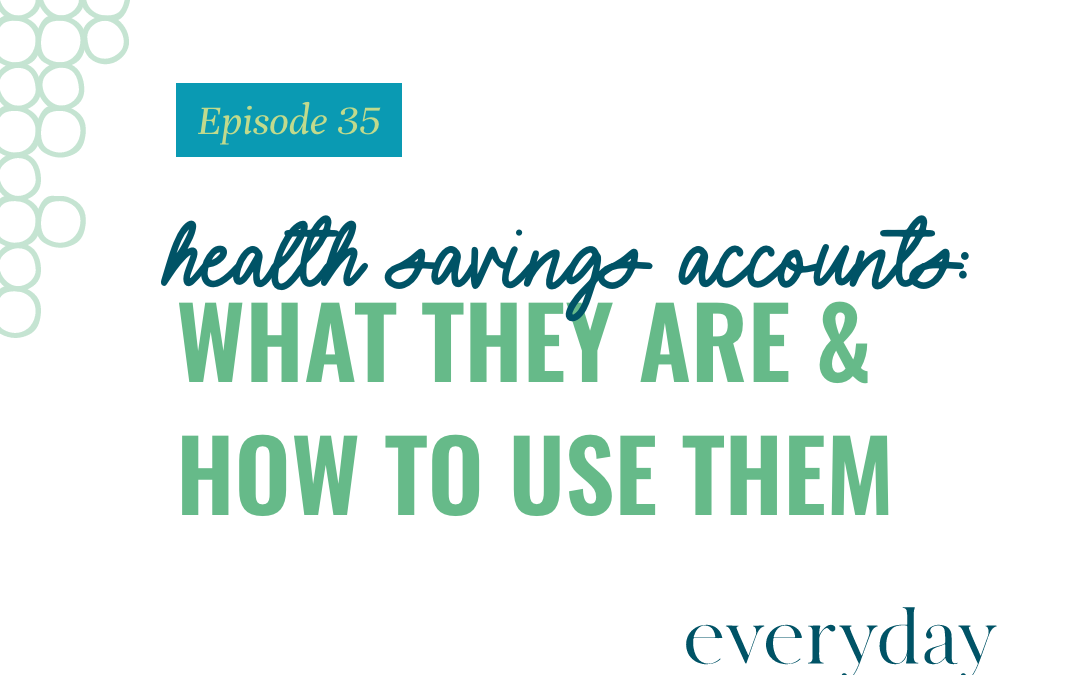Today’s topic is Health Savings Accounts. An HSA is a special type of savings account that’s typically offered as an option with a high-deductible health insurance plan.
With an HSA, you can reduce the financial hit of a serious medical issue. Plus, HSAs offer tax benefits.
I recently started using an HSA myself, so I’ve got some practical tips for making the most of this unique type of investment.
Health Insurance Basics
Here in the U.S., health insurance costs are typically divided into two categories: premiums and deductibles. The premium is the amount you pay every month to maintain your health insurance policy, and the deductible is the initial amount you have to pay yourself before your insurance provider starts picking up the bill.
Health insurance premiums can be expensive, whether you work in a traditional corporate job or pay for private health insurance. Many of my clients are paying somewhere between $500 and $2,500 per month in health insurance premiums – that money doesn’t even count toward the deductible!
High-Deductible Plans
If you typically enjoy good health and don’t anticipate needing a lot of medical care, you probably have a high-deductible health insurance plan. This means that you pay lower premiums each month, but if you do end up with a medical emergency, you’ll have a high out-of-pocket cost before your insurance provider starts covering the bills.
HSA Contributions
The idea behind a Health Savings Account is that it gives people with high-deductible plans the chance to save up for a medical emergency so the deductible isn’t such a big financial hit.
If you choose a high-deductible plan, you’ll likely be eligible to contribute to an HSA. I usually recommend that clients calculate the difference between the low-deductible and high-deductible plan premiums and contribute that much each month to the HSA.
HSA Tax Advantages
“Savings account” is in the name, but an HSA is really an investment account – and it’s one with significant tax benefits. All of your HSA contributions are tax-free – you won’t pay federal taxes on the money that you put into your Health Savings Account. Depending on your tax bracket, that could mean saving hundreds of dollars each year.
HSAs earn interest and investment returns. And you don’t have to pay taxes on HSA earnings!
HSA distributions are also tax-free, as long as you use the money for eligible healthcare expenses. The triple tax advantages of an HSA make it an excellent investment option.
HSA Examples
For several years, my husband and I chose a high-premium, low-deductible insurance plan. That was the best option during the years when I was pregnant because we knew we would have a lot of healthcare expenses and would meet the deductible quickly.
Last year, however, we chose a high-deductible plan – the deductible was $13,900. That’s a lot, but it’s pretty typical for high-deductible plans.
Well, we ended up having a baby who spend nine days in the NICU. So while we did end up meeting that deductible, it wasn’t a financial emergency because we had been contributing to an HSA.
An HSA Simplifies Savings
Spending money on healthcare expenses is never fun, especially when it’s a significant amount for something like a hospital stay. But an HSA can reduce that financial impact by giving you an easy (and tax-advantaged) way to save up for potential healthcare expenses.
HSA funds roll over every year, so you can just keep contributing and allowing the account to grow until you need it. An HSA can be a great way to save up for long-term care or healthcare expenses in retirement.
Bottom line: HSAs offer many advantages. If you have a high-deductible plan and the option to contribute to a Health Savings Account, I’d highly recommend that you check into it.
See you next week!

